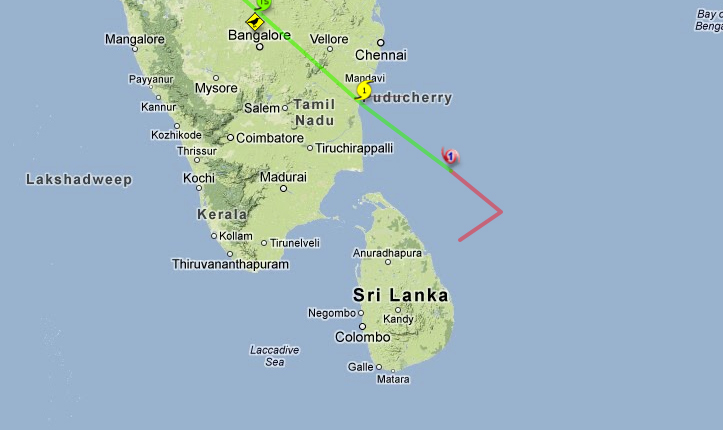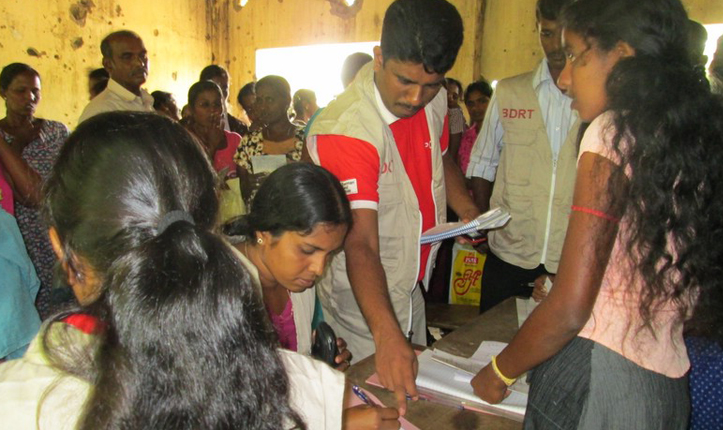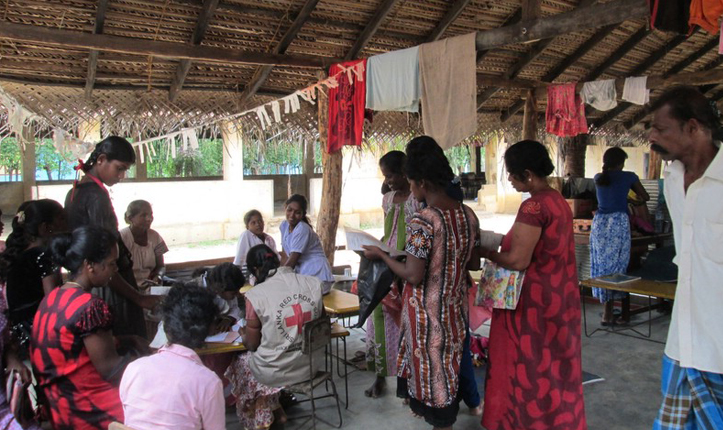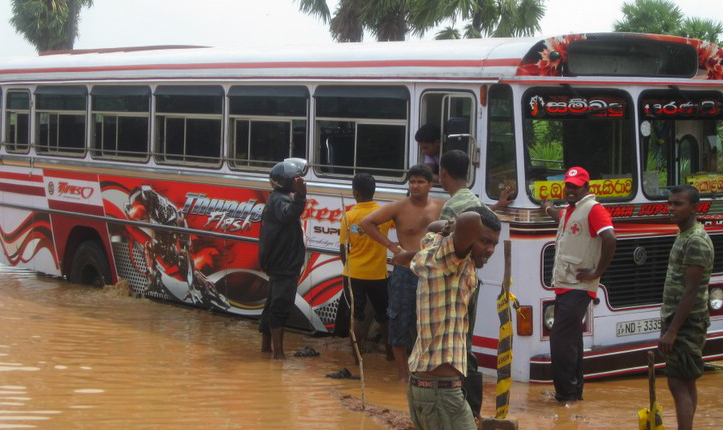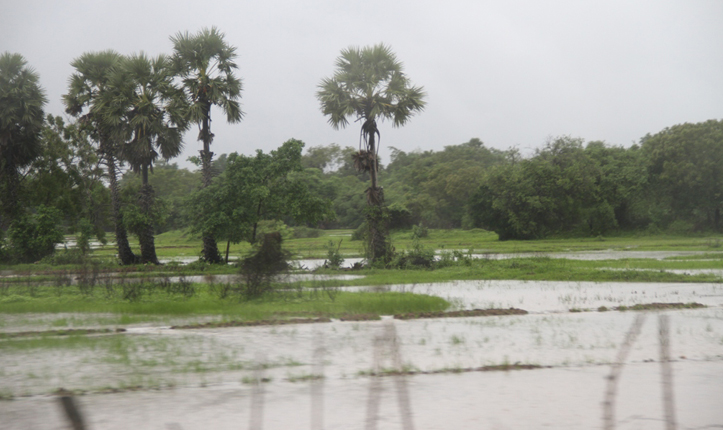Severe weather affects over 50,000 in Sri Lanka
Mahieash Johnney in Sri Lanka
01/11/2012 – Colombo, Sri Lanka: The adverse weather effects stemming from tropical cyclone Nilam has affected over 50,000 in Sri Lanka while displacing closer to 5000 people from across the island, while 2 people have already fell victim to the cyclone.
The cyclonic conditions have brought in minor flooding and severe rain accompanied with gale force winds to 13 districts of the island. The affected districts are Mullativu, Nuwara Eliya, Kegalle, Kurunegala, Kandy, Colombo, Trinco, Kilinochchi, Gampaha, Matale, Mannar, Matara & Jaffna
Mullativu district located in the northern part of Sri Lanka was the worst affected, where over 19,700 people were inconvenienced and sending 1712 persons to take shelter in temporary IDP camps. Most of the affected were recently resettled after the conflict that lasted for over 25 years.
Despite the cyclone turning away from Sri Lanka and heading towards southern India, Meteorological department officials say that there is still adverse weather systems brewing over the island, which could bring in more rain in the next few days.
As of now almost all parts of the island is experiencing heavy rain, where Jaffna in the northern peninsula recorded the highest rainfall of 76.6 mm in the day ending on 31st October 2012.
Red Cross Action
Meanwhile the Sri Lanka Red Cross Society (SLRCS) supported by the International Federation of Red Cross & Red Crescent Societies (IFRC) has been assisting the Government agents in the respective districts to carry out much needed evacuation and movement services to the affected.
In Mullativu SLRCS distributed tarpaulins, mats, mosquito nets, drinking water, and other NFRI items as per the request by the Government Agent.
“We have sent the required stocks from our warehouses in the affected areas to support and help the people who have been displaced” says Tissa Abeywickrama, Director General of SLRCS.
Meanwhile SLRCS volunteers and Branch Disaster Response Teams have been assisting the Disaster Management Centre and the relevant Government authorities in the affected districts to carry out much needed assessments to understand the ground situation.
The Deputy Director General of SLRCS Sudath Madugalle says “These assessments helps us to understand where to focus our immediate attention in order to help the most vulnerable people. It gives us a better understanding to coordinate our relief efforts.”
